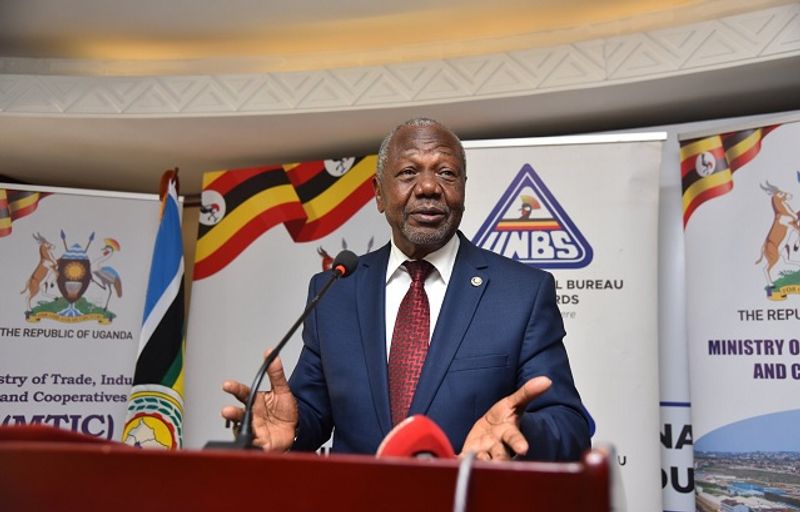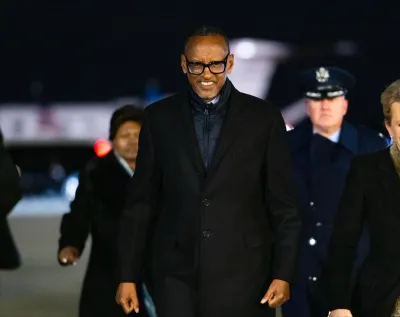
Analysis
EU-Funded Trade Project Signals Turning Point in Uganda’s Path to Green and Inclusive Economic Growth
By investing €8 million (UGX 33 billion) into the Sustainable Business for Uganda (SB4U) 2.0 – Trade and Investment Development project, the European Union has not only reaffirmed its commitment to Uganda’s development but has also laid down strategic rails for the country’s transformation into a competitive, inclusive, and sustainable economy.
This four-year project (2024–2028), implemented by the International Trade Centre (ITC), is more than just a traditional development program. It aligns tightly with Uganda’s National Development Plan IV, anchoring itself in three of the country’s most pressing aspirations: increasing household incomes, boosting employment, and achieving full monetization of the economy. Notably, the program also fits squarely within the ten-fold growth strategy that envisions Uganda’s economy scaling from USD 50 billion to USD 500 billion by 2040.
Bridging Uganda to Global and Regional Markets
The SB4U 2.0 project comes at a pivotal time as Uganda positions itself as a key player in the African Continental Free Trade Area (AfCFTA). By strengthening trade flows with regional neighbors and enhancing competitiveness through trade policy reform and facilitation, Uganda is laying the groundwork to become a regional trade hub.
Equally important is the project’s ambition to deepen Uganda’s trade relationship with the European Union — already a major trading partner thanks to Uganda’s tariff-free access to the EU market under existing trade frameworks. In this respect, the project’s laser-focus on tourism, logistics, and grains sectors suggests a targeted strategy to maximize high-potential exports while modernizing supply chains.
As Francis Mwebesa, Uganda’s Minister of Trade, Industry and Cooperatives noted, “This project is an enabler for the Government of Uganda to facilitate our private sector to seize more opportunities in regional and global markets.” That statement reflects the broader strategic shift from aid dependency to trade-led growth powered by the private sector.
The added value of SB4U 2.0 lies in its future-facing approach. It promotes a digital and knowledge-based economy with an emphasis on sustainability and green growth. These principles are crucial, especially as Uganda grapples with climate change challenges and a rapidly growing youth population in need of meaningful employment.
According to ITC Executive Director Pamela Coke-Hamilton, phase two of the project will “place sustainability, digital connectivity and job creation at the heart of economic growth.” This is a clear nod to the “green and decent jobs” agenda that blends economic inclusivity with environmental responsibility.
Furthermore, the initiative’s contribution to expanding Uganda’s e-commerce ecosystem is likely to spur innovation among small and medium enterprises (SMEs), unlocking new pathways for exports and market access that bypass traditional bottlenecks.
Europe’s Strategic Recalibration Toward Africa
From the EU’s perspective, SB4U 2.0 fits into its broader Team Europe Initiative, aimed at positioning Africa — and Uganda in particular — as a strategic trade and investment partner. As Sanne Willems of the EU Delegation to Uganda remarked, “We are confident that together we will be able to strengthen the trade and investment profile of Uganda’s tourism, logistics and grains sectors.”
This is a diplomatic and economic recalibration: Europe is no longer merely a donor, but a stakeholder in Uganda’s long-term economic architecture.
With a strong foundation laid during the inception phase in 2024, SB4U 2.0 is well-positioned to transform Uganda’s private sector landscape, boost exports, and create sustainable livelihoods. But for the project’s success to be fully realized, strong coordination between public institutions, private sector players, and development partners will be critical.
If implemented effectively, this project will not just bring Uganda’s high-value products closer to EU markets — it could help usher in a new era of green, inclusive, and export-led economic transformation.














Marlene Luwedde
Leave a Comment
Your email address will not be published.